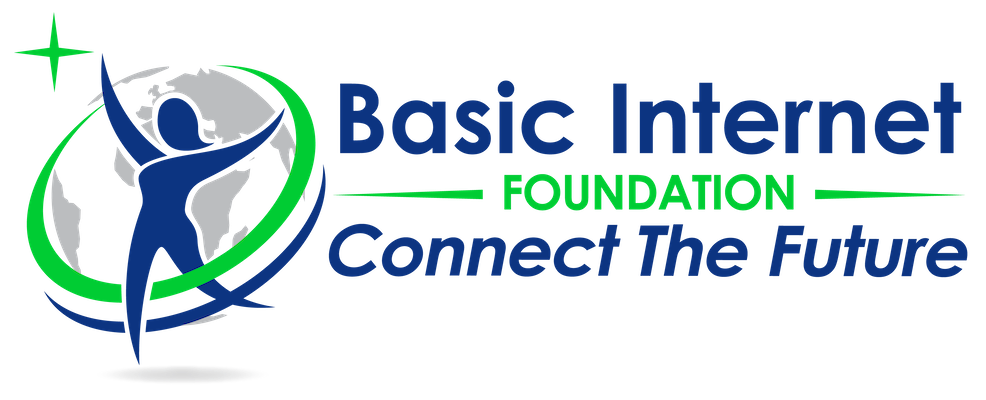[vc_row type="in_container" full_screen_row_position="middle" scene_position="center" text_color="dark" text_align="left" overlay_strength="0.3" shape_divider_position="bottom" bg_image_animation="none"][vc_column column_padding="no-extra-padding" column_padding_position="all" background_color_opacity="1" background_hover_color_opacity="1" column_link_target="_self" column_shadow="none" column_border_radius="none" width="1/1" tablet_width_inherit="default" tablet_text_alignment="default" phone_text_alignment="default" column_border_width="none" column_border_style="solid" bg_image_animation="none"][vc_column_text]
Partners in Education Ethiopia and Basic Internet Foundation signed a Memorandum of Understanding on the 17th of July 2020.
Partners is a non-profit charitable organization re-registered under the revised proclamation (No. 1113/2019) of the Ethiopian Civil Society Organizations (No.3337), with Yehalem Abebe as Executive Director. Partners is registered at P.O.Box 15692, Addis Ababa, Ethiopia.
Partners’ mission is to improve the lives of disadvantaged people through quality education. It strives to achieve its missing (quality of inclusive education in Ethiopia) through, among other things, improving availability of high quality teaching and learning resources; upgrading teachers’ pedagogical skills and content knowledge; providing adequate and safe water and latrine, improving children’s knowledge and practices of hygiene and sanitation, family planning, eye health, organic gardening and nutrition, building and furnishing school physical facilities.
 Partners follows a holistic and community driven approach in its project planning and programming; invests in long term outcomes rather than in short term outputs; strives to achieve measurable improvements in its target groups; builds on communities' strengths and resources; and closely works with a range of partners that share its mission and values.
Partners follows a holistic and community driven approach in its project planning and programming; invests in long term outcomes rather than in short term outputs; strives to achieve measurable improvements in its target groups; builds on communities' strengths and resources; and closely works with a range of partners that share its mission and values.
Basic Internet Foundation promotes free access to information for all, and has established community-driven informations spots to provide free access. The Foundation's distributed architecture opens for a quick deployment of a cost-effective Internet distribution worldwide, allowing for a reception of a 3Gl4G network even in areas with no connectivity.
The costs of the infrastructure itself is as cheap as a mobile phone, about 300 USD. For a CAPEX of about USD 1100 we enable lnternet access for everyone in the society. While lnternet links are expensive, its information spot solution has OPEX of typically USD 15-20 per month. Given the cooperative model for digital inclusion, they expect that an information spot can have OPEX costs of less than USD 10. Their business model for freemium access to internet is sustainable, though needs a collaboration of stakeholders.
The goal of the collaboration is connect the unconnected by contribution to digital access to information on the Internet lite for all. It will minimize disruption of teaching and learning due to infectious diseases or other reasons by providing remote solutions. In addition, the partnership will mitigate learning losses (due to COVID-19, Summer Recess, etc) and narrow daily gaps and accelerate academic growth for all children (including those with special needs) through providing access to age and culturally appropriate, and curriculum aligned digital contents in different formats in and outside the classroom and in group or individually at the learners’ preferred times.
It will also improve quality of instruction through low cost teacher training (remote teacher capacity building support) and providing teachers with the technology and technical support they need to deliver blended learning. Finally, it will improve the health and gardening performances of students, and by extension, that of their families and neighbours with the objectives of ultimately helping to reduce the incidence of water and sanitation-related diseases, preventing avoidable blindness, improving family planning and nutritional practices and increasing household income through improving availability and accessibility of digital contents
Our call for action entails invitation of shareholders to the digital inclusion agenda and project, entrepreneurial experts, funding mechanisms via donor institutions, partners from both the public and private sectors and other non-governmental organisations.
Two examples addressing the role of broadband, regulations and municipal networks. And they leave the question:
What can we do to give everyone free access to information?
[/vc_column_text][/vc_column][/vc_row]


Recent Comments